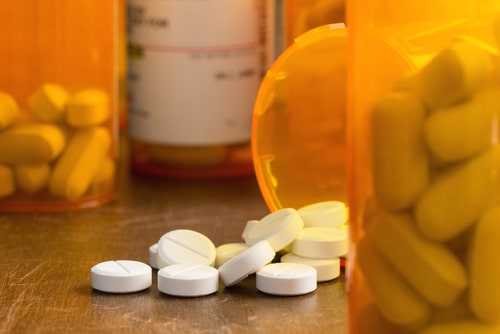Should Pharmacists Be Held Responsible for a Doctor’s Irresponsible Prescribing Habits?
One particular requirement of a pharmacist’s actions is that they always be in the best interest of the patients. That puts them in an often uncomfortable and compromising situation where pharmacists have the knowledge to identify irresponsible prescribing behavior on the part of the doctor. That behavior can put patients at risk of developing addictions and a high risk of overdose. Many who are in the throes of the opioid epidemic are in that position because a doctor was irresponsible with their prescribing habits.
When you look at the presence of prescription medication, it’s no surprise that the majority of those abusing prescription opioids are middle-class adults. So the question remains, should a pharmacist take some responsibility for acknowledging or reporting a doctor’s irresponsible prescriptions? Contact our Carolina rehab experts right away.
Can Pharmacists Report Irresponsible Prescriptions to Anyone?
During their training, pharmacists are encouraged to report all concerns to the state medical board. However, once they’re in the field, many pharmacists are conditioned to understand that their career and income could be at risk if they report any physician. Many physicians have taken legal action against pharmacists that have reported them, and it’s created an environment of fear.
However, pharmacists should report all of their concerns regarding a doctor’s prescribing habits. Many people experiencing addiction to opioids started with a doctor irresponsibly prescribing opioid medication.
In neither North nor South Carolina are pharmacists required to provide medication. This means that throughout the Carolinas, pharmacists akin deny filling a prescription If they believe that there is a high-risk to the patient’s health. They cannot only question the prescription that a doctor writes, but they can refuse to provide it to the patient.
Opioid Crisis Updates
In May of 2020, there were two lawsuits filed in Cleveland through the federal court by two separate Ohio counties. The lawsuit alleges that major and well-known pharmacy chains such as CVS, Walgreens, Rite Aid, Walmart, and Giant Eagle all played key roles in the perpetuation of the opioid epidemic.
They claim that the chains knowingly sold millions of pills to small communities and provided pharmacists with bonuses when they sold large amounts of prescription opioids. CVS is the only one who has responded to media requests for comment, and they acknowledged that pharmacists do not sell opioids; however, the lawsuit seems to have quite a bit of weight.
The discovery of these five major chains playing a huge role in the opioid crisis may help lawmakers, and administrators better understand how to tackle the crisis and possibly end the epidemic. Ensuring that people have access to help and affordable rehabilitation facilities is one primary element of addressing the opioid crisis, but closing off easy access to the drugs themselves is another primary element.
Identifying Symptoms of Opioid Withdrawals
If you’ve experienced opioid withdrawals, then you should know that they can be life-threatening. It is critical that if you’re experiencing opiate withdrawals that you seek medical attention and get help to come off the substance safely.
Withdrawal symptoms will often include restlessness, tearing of the eyes, runny nose, irritability, insomnia, and muscle aches. You may also experience excessive sweating, diarrhea, cramping, nausea, rapid heartbeat, and high blood pressure. The rapid heartbeat and high blood pressure are the two most concerning elements, although doctors also quickly become concerned over dehydration when diarrhea and nausea are present.
These symptoms can often appear or within hours of going without opioids, and pharmacies should be able to detect the symptoms of opioid withdrawal when running a prescription. If someone comes in to fill a prescription, and they are displaying these symptoms, it may be unethical for the pharmacist to complete the prescription.
Getting Support for Your Opioid Addiction
If you’re experiencing opioid addiction or substance abuse disorders, then you should take the first step towards creating a sober lifestyle where you can thrive. Contacting a local rehab facility can help you not only get clean but learn to stay clean. Many people attempt to take on addiction alone, and often it is not sustainable because the core of addiction runs far beyond that initial prescription or the physical dependence.
At Rehab Carolinas, we help people understand the underlying elements which lead them to addiction and how they can learn to overcome those challenges. We help people build coping mechanisms, and positive lifestyles are so that they can turn down drug offers an understand how to appropriately respond to triggers.
